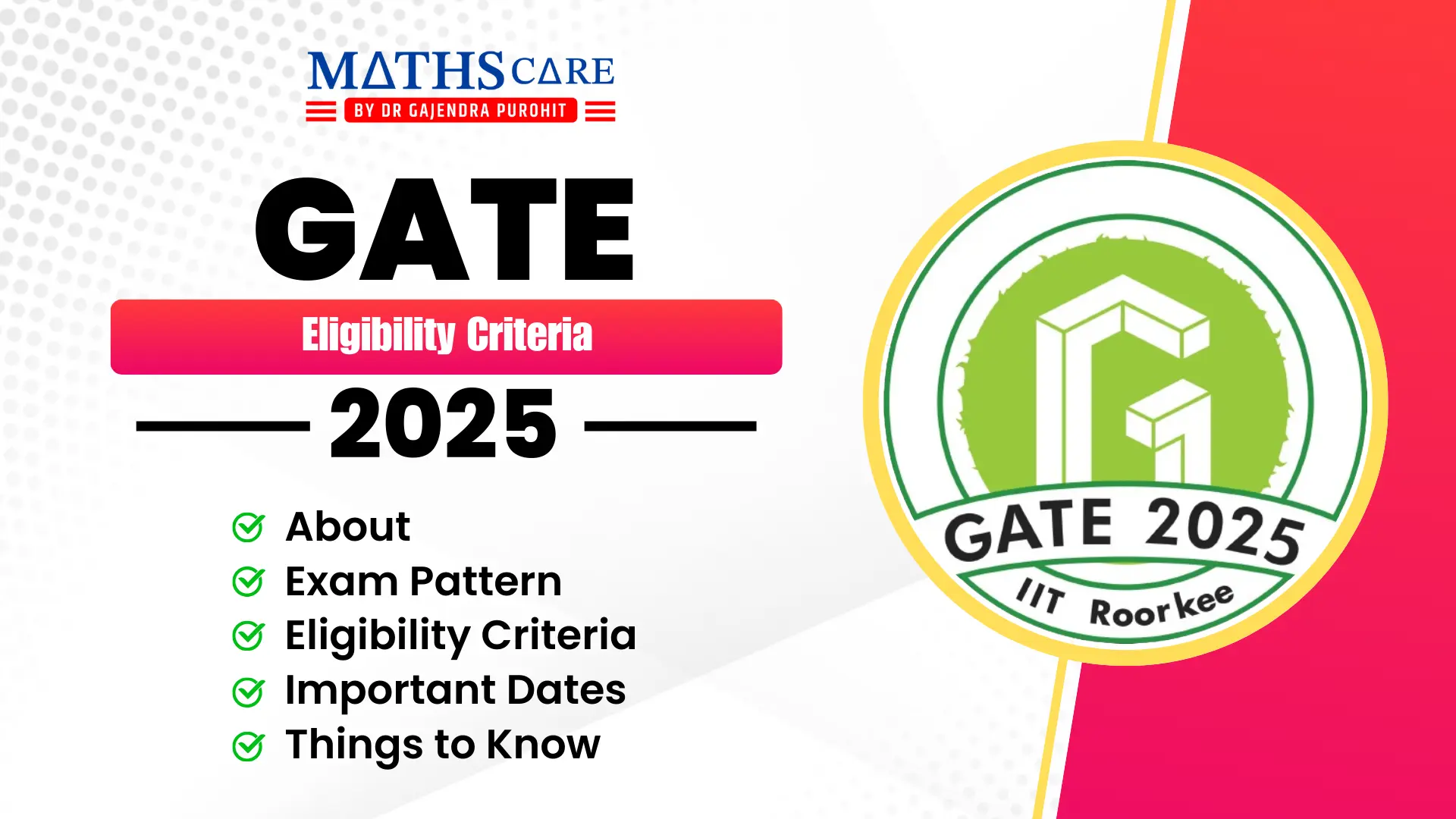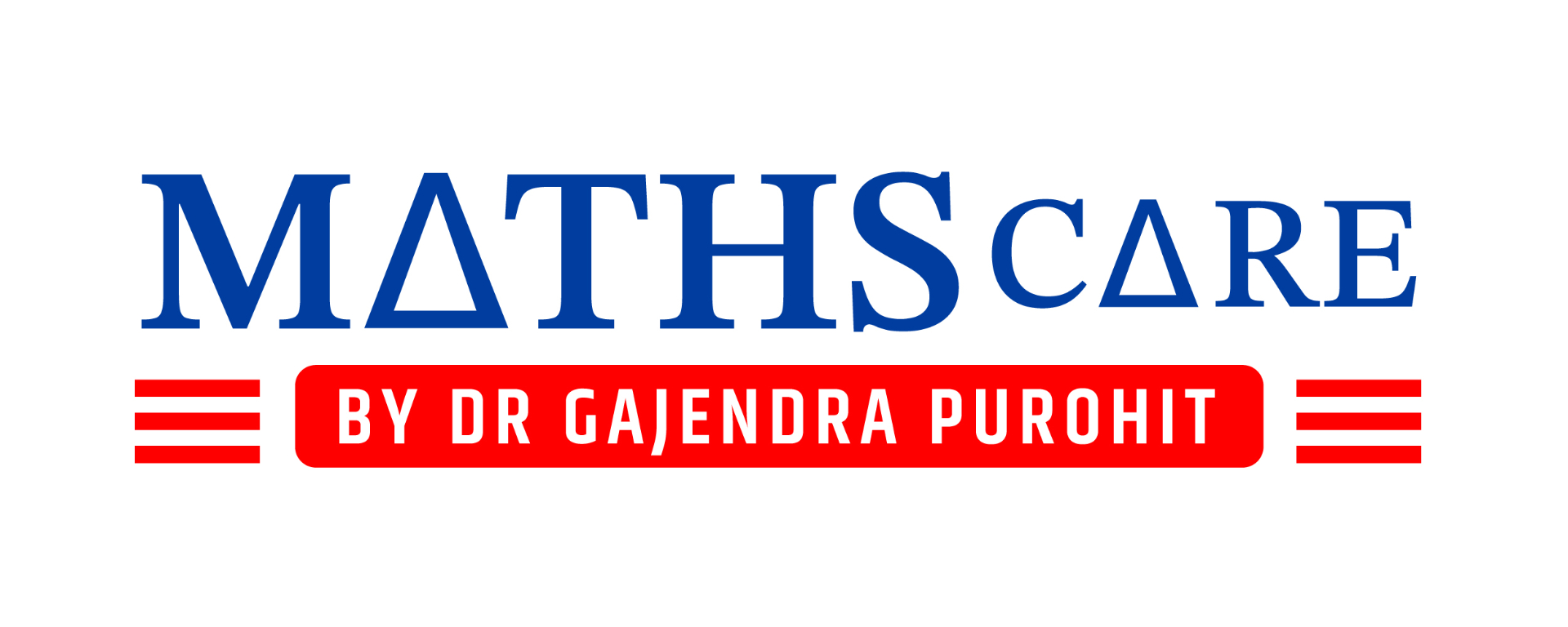GATE Exam 2025: Revised Combinations
The GATE (Graduate Aptitude Test in Engineering) is a highly respected examination for engineering graduates in India. Conducted annually by either an IIT or IISc, the GATE exam is a crucial step for those seeking postgraduate admissions or looking to build a career in public sector undertakings (PSUs). With each passing year, the scope of the GATE exam broadens, providing more opportunities and flexibility for candidates.
For the 2025 edition, GATE has revised its two-paper combinations, enabling students to choose a wider range of subjects to match their academic interests and career goals. This blog details the revised two-paper combinations and the original combinations to guide candidates in selecting the best fit for their needs. The article also includes key details about the exam pattern, important dates, deadlines, and career opportunities available for successful candidates.

About the GATE Exam 2025
The GATE exam evaluates a candidate’s understanding of various engineering and science subjects, as well as their analytical and problem-solving abilities. A high GATE score opens up multiple doors, whether in academia, research, or technical fields within the public and private sectors. The exam is widely considered one of the most challenging and competitive exams in India, with extensive preparation required.
The purpose of the GATE exam is twofold:
Higher Education: GATE scores are essential for admissions to postgraduate programs (M.Tech, M.S., Ph.D.) at IITs, IISc, NITs, and other prestigious institutions.
Recruitment: Various PSUs, such as IOCL, NTPC, and BHEL, use GATE scores to recruit engineering graduates for high-paying technical positions.
For GATE 2025, candidates can now choose from an expanded selection of two-paper combinations, providing more freedom to align their preparation with specific career paths.
Exam Pattern for GATE 2025
The GATE exam pattern remains consistent, focusing on both core subject knowledge and general aptitude. Here’s a breakdown of the format:
Duration: 3 hours (180 minutes)
Sections:
General Aptitude (GA): 15 marks, common across all papers.
Subject-Specific Questions: 85 marks, based on the candidate’s selected papers.
Types of Questions:
Multiple Choice Questions (MCQs): Questions with four options, only one of which is correct.
Multiple Select Questions (MSQs): Questions with multiple correct answers, all of which must be selected to receive full marks.
Numerical Answer Type (NAT) Questions: Questions requiring numerical responses, without options to choose from.
Candidates can select two papers for the exam, but these must be chosen from the allowed combinations. Each paper carries 100 marks, with a total of 65 questions divided between the two selected subjects.
Old Two-Paper Combinations (Prior to Revision)
Before the revision, GATE offered a limited set of two-paper combinations, which restricted students to a narrow range of subjects. Here are the original two-paper combinations based on each candidate’s primary subject paper:
AE (Aerospace Engineering): CE (Civil Engineering), ME (Mechanical Engineering), XE (Engineering Sciences)
AG (Agricultural Engineering): CE (Civil Engineering)
AR (Architecture and Planning): CE (Civil Engineering), GE (Geomatics Engineering)
BM (Biomedical Engineering): BT (Biotechnology), IN (Instrumentation Engineering)
BT (Biotechnology): BM (Biomedical Engineering), XL (Life Sciences)
CE (Civil Engineering): AE, AG, AR, ES (Environmental Science), GE, NM (Naval Architecture and Marine Engineering), XE
CH (Chemical Engineering): ES, PE (Petroleum Engineering), XE
CS (Computer Science and Information Technology): DA (Data Science), EC (Electronics and Communication Engineering), GE, MA (Mathematics), PH (Physics), ST (Statistics)
CY (Chemistry): XE, XL
DA (Data Science): CS, EC, EE (Electrical Engineering), MA, ME, PH, ST, XE
EC (Electronics and Communication Engineering): CS, DA, EE, IN, PH
EE (Electrical Engineering): DA, EC, IN, PH
ES (Environmental Science and Engineering): CE, CH, GE
EY (Ecology and Evolution): XL
GE (Geomatics Engineering): AR, CE, CS, ES, GG (Geology and Geophysics)
GG (Geology and Geophysics): GE
IN (Instrumentation Engineering): BM, EC, EE, ME
MA (Mathematics): CS, DA, PH, ST
ME (Mechanical Engineering): AE, DA, IN, NM, PI (Production and Industrial Engineering), XE
MT (Metallurgical Engineering): XE
NM (Naval Architecture and Marine Engineering): CE, ME
PE (Petroleum Engineering): CH
PH (Physics): CS, DA, EC, EE, MA, XE
PI (Production and Industrial Engineering): ME, XE
ST (Statistics): CS, DA, MA, XH (Humanities and Social Sciences)
XH (Humanities and Social Sciences): ST
XL (Life Sciences): BT, CY, EY
These combinations were limited, offering fewer interdisciplinary possibilities. The revised combinations for 2025 expand the list, providing candidates with more choices and flexibility.
New Two-Paper Combinations for GATE 2025
With the revised combinations, GATE 2025 candidates now have more options to tailor their examination subjects to their academic backgrounds and career goals. Here’s a list of the new two-paper combinations:
AE (Aerospace Engineering): GE (Geomatics Engineering)
AG (Agricultural Engineering): XE (Engineering Sciences)
AR (Architecture and Planning): GG (Geology and Geophysics), XE
BM (Biomedical Engineering): DA (Data Science), EE (Electrical Engineering), XE
BT (Biotechnology): ES, EY (Ecology and Evolution), CS (Computer Science), DA
CE (Civil Engineering): DA, TF (Textile Engineering and Fibre Science), EE
CH (Chemical Engineering): CY (Chemistry), XL (Life Sciences), DA
CS (Computer Science and Information Technology): XE, BT, EE, ME (Mechanical Engineering)
CY (Chemistry): CH, XH (Humanities and Social Sciences)
DA (Data Science): BM, CE, IN (Instrumentation Engineering), CH, MT (Metallurgical Engineering), BT, XH, GE
EC (Electronics and Communication Engineering): XL
EE (Electrical Engineering): BM, XL, CS, CE
ES (Environmental Science and Engineering): BT, EY
EY (Ecology and Evolution): BT, MA (Mathematics), ES
GE (Geomatics Engineering): MN (Mining Engineering), XE, AE, DA
GG (Geology and Geophysics): AR, MN, XE
IN (Instrumentation Engineering): DA
MA (Mathematics): EY
ME (Mechanical Engineering): CS
MN (Mining Engineering): GE, GG
MT (Metallurgical Engineering): PI (Production and Industrial Engineering), DA
NM (Naval Architecture and Marine Engineering): XE
PE (Petroleum Engineering): XE
PH (Physics): XL
PI (Production and Industrial Engineering): MT
TF (Textile Engineering and Fibre Science): XE, CE
XE (Engineering Sciences): AG, AR, BM, CS, GE, GG, NM, PE, TF
XH (Humanities and Social Sciences): DA, CY
XL (Life Sciences): CH, EE, PH, EC
These expanded combinations allow for interdisciplinary preparation, helping candidates combine their expertise in new and diverse ways. For instance, a candidate specializing in Mechanical Engineering (ME) can now take Computer Science (CS) as a second paper, broadening opportunities in technology-focused sectors.
Important Dates for GATE 2025
Staying informed about the important dates for GATE 2025 is crucial to ensure you don’t miss key deadlines. Here are the anticipated timelines:
Application Start Date: August 2024
Application End Date: September 2024
Extended Application Deadline: September 2024
Admit Card Release: January 2025
Exam Dates: February 2025
Result Declaration: March 2025
These dates may vary slightly, so regularly check the official GATE website for any updates.
Deadlines for Application Rectification
GATE provides an Application Rectification Window for candidates to make corrections to their applications. It’s essential to use this opportunity to rectify any errors, especially in details like personal information, academic records, and paper selections. Missing the rectification deadline can result in eligibility issues, impacting your chance to appear for the exam.
Application Rectification Window: This is typically open in October, soon after the close of applications.
Candidates should check for errors immediately after submission to take prompt action during the rectification period.
Career Opportunities After GATE 2025
A strong performance in GATE can open up a world of opportunities:
Postgraduate Programs: Admission to M.Tech, M.S., and Ph.D. programs in premier institutions.
PSU Recruitment: Direct recruitment opportunities in PSUs like IOCL, NTPC, BHEL, and HPCL.
Research Opportunities: Options for research roles in public and private research centers.
International Opportunities: Some international universities consider GATE scores for postgraduate admissions.
Private Sector Jobs: High GATE scores are valuable for roles in R&D departments of tech firms and engineering companies.
Conclusion
The revised GATE 2025 two-paper combinations provide candidates with more choices and flexibility, allowing them to create a combination that best fits their career goals. Whether aiming for higher studies, a prestigious PSU position, or research opportunities, GATE 2025 offers an updated pathway to support diverse aspirations. By understanding the new combinations and planning accordingly, candidates can maximize their potential and align their preparation with their desired career paths.
GATE FAQS
How do I pay the GATE 2025 application fee?
Payment options will appear on the GATE 2025 website, including net banking, debit/credit cards, and UPI.
How much is the fee for two papers in GATE 2025?
The fee structure varies, and you can check it at gate2025.iitr.ac.in.
What is the fee for foreign nationals or NRIs?
Refer to the international fees section on the GATE 2025 official site.
What should I do if my internet connection fails during submission?
Log in again to continue the application process.
Do OBC (Non-Creamy Layer) or EWS candidates need to upload category certificates?
No, only SC/ST/PwD certificates need to be uploaded.
Do SC/ST/PwD candidates need to upload category certificates?
Yes, these certificates must be uploaded to avail fee concessions.
BEST OFFERING COURSES FOR YOU
BEST BOOKS FOR IIT JAM/ CSIR-NET
BUY BOOKS ON OUR APP
RECENT POSTS

GATE 2025 Admit Card Release Date

GATE 2025 Strategy for Last Month

GATE Eligibility Criteria 2025








